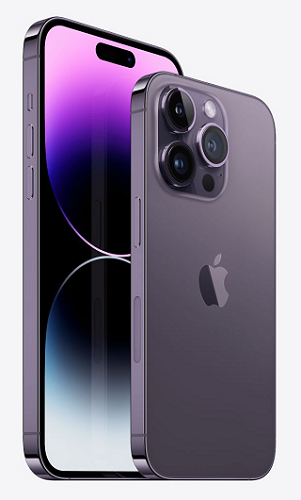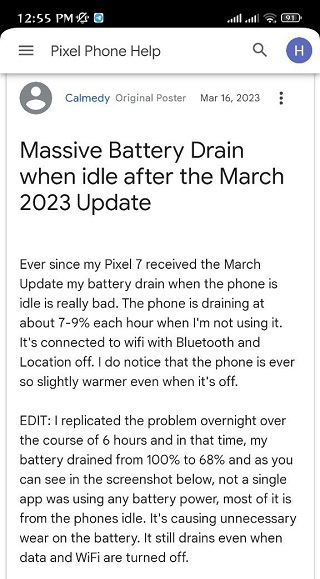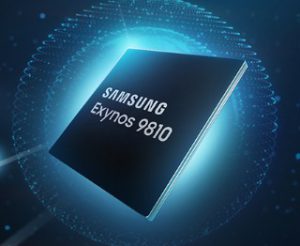New updates are being added at the bottom of this story…….
Original story (published on April 10, 2023) follows:
Ever since Google ditched Qualcomm’s Snapdragon SoCs in favor of in-house Tensor chipsets for their Pixel 6 and Pixel 7, reports of persistent poor battery life issues have become too common among owners of these phones.
It had been coming, especially having witnessed the great success Apple has had with the in-house Bionic chipsets. Even when working with partners, Apple always has deeper control over the entire device-creation process.
And as a result of this low-level control over every facet of the A Bionic SoC-creation process, recent iPhones are among the best when it comes to battery life regardless of how hard you push them.

Similarly, Google wanted this level of control over the Tensor chipset that powers the Pixel 6 and newer devices. But the results have been far from amazing, especially when it comes to battery life and general performance.
In fact, battery life issues have been a mainstay ever since the Pixel 6 and Pixel 7 arrived. Multiple software updates later, these issues still persist.
Interestingly, the cause of excessive battery drain on Pixel 7 and Pixel 6 has mainly been mobile network connectivity and idle or background activity.
While the latter can easily be pinned to poorly optimized software — which is a surprise considering Google’s reputation — the former is possibly tied to something else.
![]()
So, why has Google been unable to address this issue by now, multiple software updates later, including a major OS upgrade at least for the Pixel 6 family?
Well, at this point, the only logical argument is that it’s a hardware issue. Otherwise, any of the many monthly updates the phones have received would have fully fixed the problem if it was indeed related to software.
Granted, there’s little that can be done to address the Pixel 6 and Pixel 7 extreme battery consumption issue. But Google has a huge decision to make if interested in fully addressing this annoying problem in future.
How Pixel 6 & Pixel 7 users are “fixing” battery life issues
As noted earlier, battery life concerns have become a mainstay in the Google Pixel subreddit and official support forums. After every update, there’s often someone complaining about poor battery life.
But that’s not always the case with everyone, with others also reporting improved battery life after some software updates. Whether it’s placebo or not, there’s definitely a difference in opinion.

So as you can see from the last time I did this it was over 20%. Google pixel 6 pro is using over 20% of battery power in order to talk to the mobile network back and forth I believe this is outrageous it’s uncalled for and somebody needs to fix it…
Source
Those affected have often found ways to mitigate these issues, among them enabling battery optimizations for all apps, turning off 5G, Bluetooth and Location settings. But they always come back, with or without new updates.
We’ve documented other multiple workarounds in our articles highlighting the annoying battery drain issues in Pixel 6 and Pixel 7. But as mentioned earlier, this would be a non-issue if the phones’ hardware had nothing to do with it.
What can Google do to fully fix Pixel battery drain issues?
It’s worth noting that Google hasn’t come out to officially acknowledge the Pixel 7 and Pixel 6 battery life concerns. But through various updates, the company has been claiming to improve battery life.
If this was indeed working, there wouldn’t be frequent reports of poor battery life after every monthly security update. Unfortunately, this is the case. Which begs the question, what should Google do to fully fix this problem?

Well, I think I have a solution for this. And although it might be drastic, it may be necessary for the long-term success of the Pixel smartphone brand.
Qualcomm or TSMC should take over after Tensor G3
Even though Google is now in charge of the design process for its Tensor chipsets, it’s still Samsung that is tasked with the duty of seeing the entire process through.
Just like Apple and TSMC, where the latter follows the former’s instructions to manufacture Bionic chipsets for the iPhone, Samsung manufactures Tensor chipsets based on Google’s guidelines.
However, it is the manufacturing company’s architecture that’s used to see out the creation of the chipsets, which is what Google needs to reconsider for its Tensor G4 and future SoCs.
![]()
Unless you just resurfaced, it has been rumored that Samsung will still manufacture the Tensor G3 chipset that will power the Pixel 8 and Pixel 8 Pro.
Granted, it’s only with the Pixel 9’s Tensor G4 that Google can make partnership changes, unless otherwise. Since the battery drain has often been linked to mobile network, it’s possible that modems used have a problem.
Is the Tensor chipset struggling to connect to 5G or even LTE networks hence consuming too much battery while at it?
It’s possible, which could partly explain why Samsung Galaxy S and Note devices powered by Exynos chipsets often struggled with heating, performance, and excessive battery consumption issues.

For years, Samsung only sold Snapdragon models in the US, with Exynos variants reserved for Europe, Asia, and Africa. Interestingly, only Exynos users were affected by battery and performance issues.
To level up the playing ground, Samsung switched to Qualcomm’s Snapdragon for all Galaxy S23 markets, and now just about everyone has plenty of positive things to say about the series’ battery life.
Of course, Samsung never said they switched to Snapdragon chipsets for battery life reasons. But given this was one of the major concerns, it’s a welcome change for those who often got the raw end of the deal with Exynos models.
Now, if Samsung can ditch their own Exynos architecture used to make the Tensor chipset in favor of Qualcomm’s, Google also needs to borrow a leaf and perhaps team up with Qualcomm for future Tensor chipsets.
There’s also TSMC that has a good reputation working with Apple, so Google has another solid option if they decide to ditch Samsung and don’t want to do business with Qualcomm.

Recent iPhones are known to have great battery life and it’s TSMC that makes their chipsets, so teaming up with the Taiwanese tech giant could help fully fix the battery life issues in next-gen Pixels.
Of course, this isn’t to pin down the Google Pixel 7 and Pixel 6 battery life issues entirely on Samsung and its Exynos architecture, but just a possible reason among many that could be behind the problem persisting this long.
Do let us know your thoughts in the comments and also vote on the poll below.
Update 1 (April 12, 2023)
05:45 pm (IST): Here’s a interesting video that offers a lot more insight into Google’s potential options and plans for their Tensor chips.
Update 2 (April 13, 2023)
12:15 pm (IST): Looking at a recent post on Google IssueTracker, it appears that the issue is hardware related and cannot be fixed by any software update.
Update 3 (July 7, 2023)
07:12 pm (IST): Fresh report suggests that Google is going to switch from Samsung to TSMC for the first fully custom Pixel chip, the Tensor G5.
Feature image: Google
PiunikaWeb started as purely an investigative tech journalism website with main focus on ‘breaking’ or ‘exclusive’ news. In no time, our stories got picked up by the likes of Forbes, Foxnews, Gizmodo, TechCrunch, Engadget, The Verge, Macrumors, and many others. Want to know more about us? Head here.


